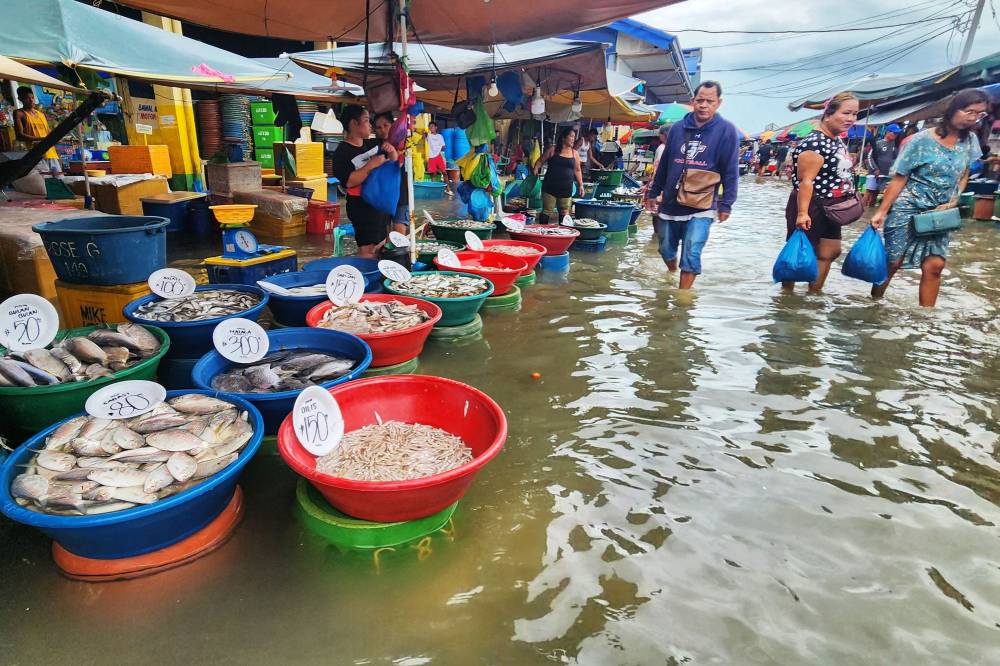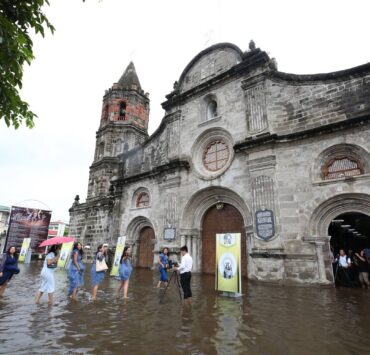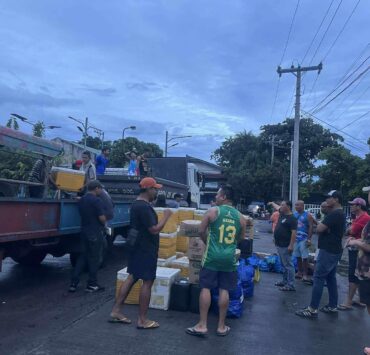‘Bangus’ growers endure losses as floods hit Pangasinan ponds

CALASIAO, PANGASINAN—Widespread flooding caused by Severe Tropical Storm “Crising” (international name: Wipha), the southwest monsoon (“habagat”) and high tide submerged fishponds in this province, dealing another blow to local “bangus” (milkfish) producers still reeling from last year’s losses.
According to Christopher Sibayan, president of Samahan ng Magbabangus sa Pangasinan (Samapa), the poor weather conditions caused floodwaters to rise rapidly, inundating their fishponds.
“Many of us were caught off guard. The floodwaters were just too much—they overtopped the dikes. While some were able to put up nets around their ponds, time was a constraint because the water rose so suddenly,” Sibayan told the Inquirer on Wednesday.
He said he managed to save some of his stock, which, although in sizes considered already “harvestable,” were scheduled for harvest a week later to reach 500 grams each.
Price slump
“But we can’t risk losing the stocks if the dikes give way because of the floods. It’s better to sell at lower prices than lose the bangus,” Sibayan said.
The farm-gate price of bangus is P155 per kilo, down from P175 in recent weeks. Retail prices, however, remained at P200 or higher.
The industry is just beginning to recover from the price slump from November 2023 to May 2024, when prices dipped to P90 to P110 a kilo—far below the production cost of P135 a kilo—reportedly due to overproduction and massive fish importation.
Prices were slowly climbing again when production areas were hit by floods triggered by heavy rains accompanying Typhoon “Kristine” (Trami) in October 2024, wiping out stocks meant to be harvested in June and July this year.
“But the floodwaters now are much worse than what Typhoon Kristine caused. Areas that weren’t flooded before are now heavily inundated,” he said.
Sibayan installed abaca nets around 5 hectares of ponds where he had just released a million bangus fry, but he remained anxious that heavy rains might cause water levels to rise further, overtopping or damaging the nets.
Other producers, especially those with larger ponds, were not able to install protective nets, allowing their cultured fish to escape.
Dike repairs
“Many of the milkfish have ended up in the rivers and are now being caught [by residents],” he said.
Aside from suffering from low bangus prices from 2023 to 2024, they also incurred heavy expenses in repairing dikes destroyed by Kristine.
“We are hoping the government will see our plight and recognize our role in the country’s food sustainability,” Sibayan said.
Samapa is assisting small pond owners whose only source of income is bangus farming.
“If they continue to lose their harvests, where will they get the income to support their families?” he asked.
One key assistance that could help the industry, according to Samapa, is the dredging of Pangasinan’s river systems, which sustain the province’s bangus production.
The group urged national and provincial governments to prioritize the dredging of rivers, “which are heavily silted and can no longer contain heavy rainwater—leading to the widespread flooding of fishponds.”
“We are hoping the government will see our plight and help us—for the sake of the nation’s food security,” Sibayan said.

















